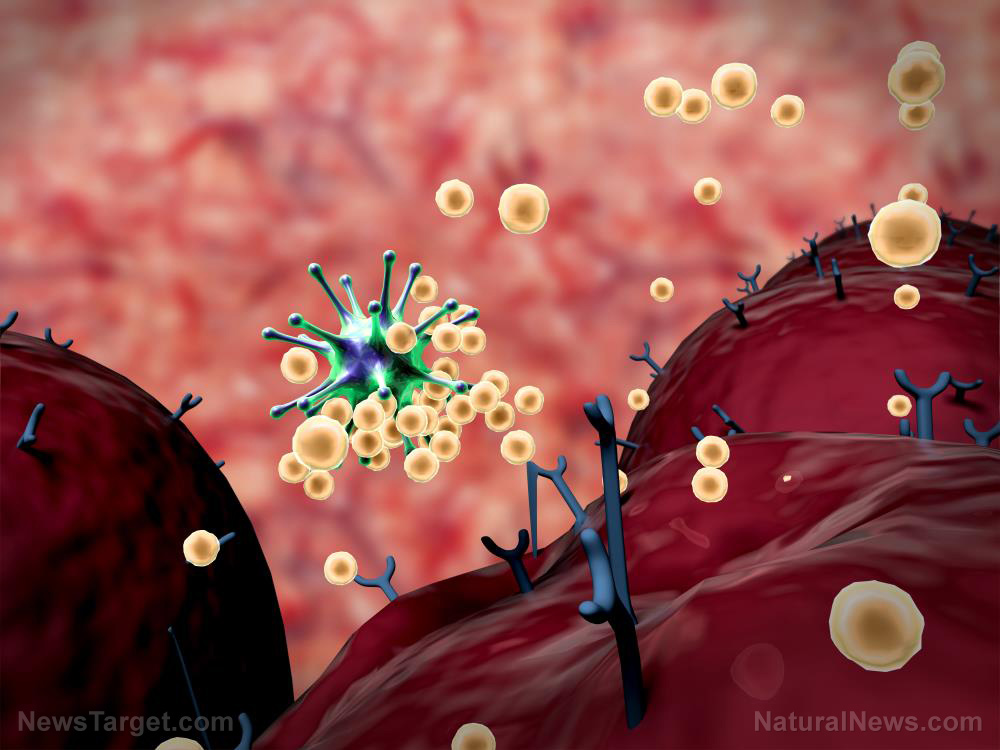Scans show changes in brain caused by coronavirus-related loss of smell
06/02/2020 / By Isabelle Z.

We’re still learning about the effects of coronavirus on the body, but it’s becoming increasingly clear that one symptom that was previously considered uncommon may be a lot more prevalent than previously thought – and for some, it may be the only symptom they’ll experience.
Italian researchers say they’ve seen images of the brain changes caused by the disease to a person’s sense of smell for the first time in a living human patient.
Not all coronavirus patients will experience neurological symptoms of the disease, but up to 65 percent will lose their sense of smell. And while it may seem plausible that the virus would have this effect because it travels through our airways, the MRIs show that the virus actually attacks the brain and can change it in visible ways.
In the scans, it is clear that there are fluctuations in the part of the brain known for controlling the olfactory sense. The patient in question is a 25-year-old Italian radiographer who was otherwise healthy. She worked in the hospital with coronavirus patients, and she did not experience severe symptoms when she became infected.
In fact, she said that she had a dry cough that only lasted a day. She never developed a fever and reported feeling mostly okay, but she was unable to smell anything, and her food and drinks tasted different. After her nose and chest exams seemed normal, doctors carried out an MRI of her brain to explore further.
What they found were changes in the right gyrus rectus and her olfactory bulbs, which take sensory information in from the nose and then pass it to the gyrus rectus for processing. The changes looked like those seen in viral attacks on the brain, and a subsequent coronavirus test was positive.
When another MRI was performed 28 days later, it showed that her brain was beginning to go back to normal, but her olfactory bulbs were still inflamed. Thankfully, she eventually got her sense of smell back.
The woman’s brain alterations were consistent with changes seen in autopsies and animal studies, but hers was the first time the effect was seen in imaging of a living human brain. Interestingly, the doctors say that MRIs of two other coronavirus patients who also lost their senses of smell did not show similar brain changes.
Loss of smell or taste recently added to official coronavirus symptom list
In April, the CDC added “new loss of taste or smell” to its officially recognized coronavirus symptom list, along with other new symptoms such as chills, muscle pain, sore throat, headache, and repeated shaking with chills. The CDC had previously only listed a fever, shortness of breath, and cough as COVID-19 symptoms.
The revisions came as a study of COVID-19 patients found that all but one person experienced at least some degree of “smell dysfunction.” A different study involving 202 patients discovered that 130 had some altered sense of smell of taste, while a third study involving 59 patients revealed that 40 had lost their sense of smell and 42 had lost their sense of taste.
For some people, the loss of their sense of smell may be the only symptom they experience, which is why adding it to the list was so important to help make it easier to identify people who might have the disease so they can isolate themselves and help prevent the disease from spreading.
Harvard Medical School Associate Professor of Otolaryngology Dr. Eric Holbrook told The Boston Globe that people who suddenly lose their sense of smell or taste should act as though they could have the disease and take the necessary precautions until they’ve gotten further guidance from a medical expert.
Sources for this article include:
Tagged Under: brain health, coronavirus, coronavirus symptoms, covid-19, loss of smell, MRI, nervous system, neurology, outbreak, pandemic, symptoms, weird science

















